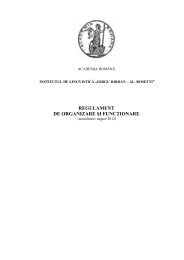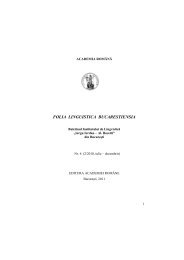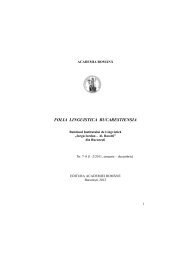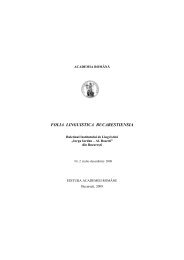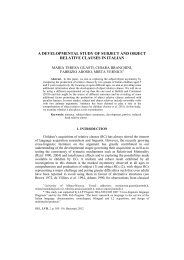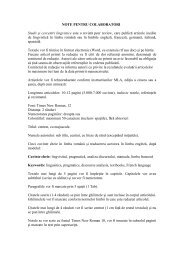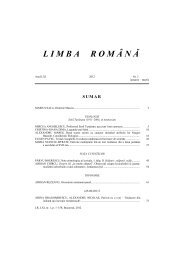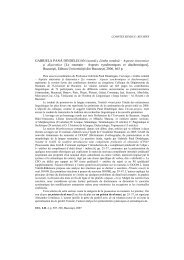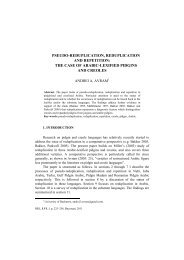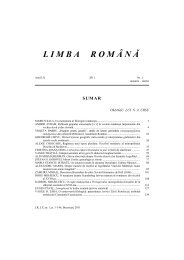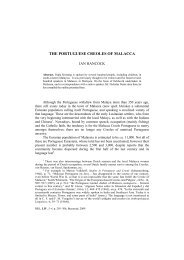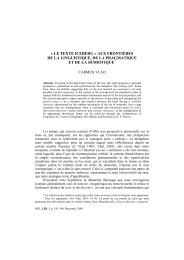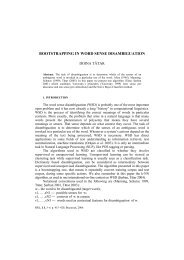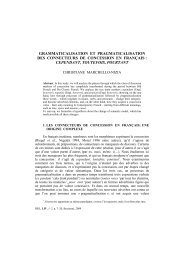'NOTHING' OR 'ANYTHING': TERMS IN IRISH AND SCOTTISH ...
'NOTHING' OR 'ANYTHING': TERMS IN IRISH AND SCOTTISH ...
'NOTHING' OR 'ANYTHING': TERMS IN IRISH AND SCOTTISH ...
Create successful ePaper yourself
Turn your PDF publications into a flip-book with our unique Google optimized e-Paper software.
214Seosamh Watson 103.5. steama: the concluding item of this section is recorded in the collectionfrom a north-western Scottish dialect made by Wentworth (2003: 27, 525), where itis used in the sense of ‘not (achieving) anything’. The non-Gaelic dental stop inthe source in question indicates unequivocally the foreign origin of the term and itsorigin is clearly the Scots word stime, cf. SND (: s.v.), with variants stym(e),stem(e), which apparently developed in this language from the sense, in negativesentences, of ‘(not being able to see) anything’ which developed, via the meaningof a ‘least visible appearance’, to signifying more generally ‘the least particle ofanything, a jot or atom’. The word in question may possibly be connected with thesimilar Scots form stim ‘haze, mist, e.g. on the sea’ which is referred by the samesource to Swedish dialectal stimba, stimma ‘steam, fog’.4.0. The next category arises from the sense of hearing.4.1. sian: this, together with the following entry, would appear to be the onlyterms whose use has been extended beyond the semantic range indicating‘hearing’. In the sense of ‘anything, nothing’ the word is usually spelt sìon inScottish Gaelic. As such, it has been recorded at 2 locations in LASID, but isattested to in a number of other dialects also. Wentworth (2003: 755), for example,quotes chan fhaigh thu sraing air sìon ‘you won’t get string for nothing’. Thespelling sìon connects the word in question to a lexeme signifying ‘weather’, whichis MacBain’s (1982: 324) preferred etymology. In my view, however, the sense of‘scream, shriek’ and, by extension, ‘voice’, cf. related Irish siansa ‘strain, melody’,siansán ‘humming, whistling; cry, clamour’, provides a preferable point ofdeparture for the development in question, especially in view of the similar usageinvolved with seinm, dùrd, etc below. The Early Irish form sian ‘chant, musicalair’ from which the word in question derives has no established etymology.4.2. seinm: in connection with the foregoing item it is perhaps worth quotingthe single instance of the semantically related form seinm, whose basic sense is‘playing (music)’, which is recorded in LASID. Seinm ar bith is returned for aConnacht dialect as a response in the context of ‘(doing) anything’. This is theverbal noun of seinn ‘play’, Early Irish senn-, which MacBain (1982: s.v. seinn)connects with the same IE root as Lat sonus.4.3. guth: the remaining terms are restricted to express the meaning only of‘hearing anything/ nothing’. The first of these is guth ‘voice’, hence ‘sound’.LASID has a listing for this at two Scottish points, Wentworth (2003: 27) notes it inhis collection and it is also familiar to me in this same sense from a related easterndialect. Lane (1922: 1089) notes its use in Ireland also in the phrase níor chualas



